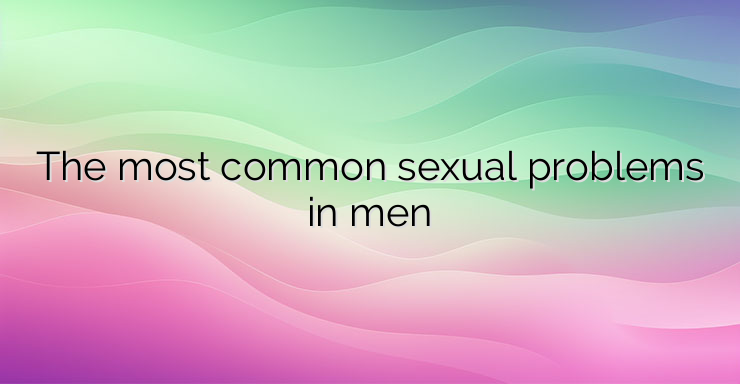Sexual dysfunction may be related to the lack of arousal, inability to reach orgasm, etc. The most common problems in men in this regard are erectile dysfunction, disorders in the ejaculation process and a decrease in sexual desire (libido). Ejaculation disorders are of several types. Premature ejaculation is associated with the man reaching orgasm immediately after penile penetration or, in more severe cases, even touching the aroused male genital organ. Delayed ejaculation is the opposite of premature ejaculation and often the man fails to reach the ultimate pleasure. The reasons for this type of sexual dysfunction can be disinterest in the partner and lack of arousal, as well as mental trauma or other psychological factors. Retrograde ejaculation is the inability of seminal fluid to pass into the urethra, causing it to back up into the bladder. This problem most often affects men suffering from diabetes or diabetic neuropathy (nerve damage). Retrograde ejaculation can also occur after surgery on the bladder neck, prostate, or after some abdominal operations. NEWS_MORE_BOX Erectile dysfunction, or so-called impotence, is the inability to achieve an erection or maintain it at a level sufficient for sexual intercourse. The condition is more common in older men, but it can also occur in younger people due to depression, anxiety or the use of certain medications and antidepressants. It is especially common among men with diabetes and high blood pressure. Loss of libido or lack of sexual desire and arousal is also one of the common sexual problems. The problem can be due to both physical and mental factors. Low levels of the male sex hormone, testosterone, can lead to mental illness, depression and anxiety, diabetes, high blood pressure, and more, which in turn can cause a lack of desire for sex.


Leave a Reply